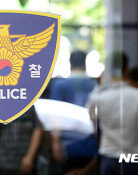China challenges U.S. electric vehicle subsidies at WTO
China challenges U.S. electric vehicle subsidies at WTO
Posted March. 28, 2024 07:28,
Updated March. 28, 2024 07:28
As Chinese electric vehicle manufacturers accelerate their expansion into the global EV market, China has lodged a complaint against the United States with the World Trade Organization regarding its Inflation Reduction Act (IRA). This act provides subsidies for electric vehicles assembled solely in the North American region. China contends that the IRA discriminates against EVs manufactured in China, ostensibly under the guise of addressing climate change. The U.S. has accused China of persisting with unfair trade practices.
According to Reuters, China has initiated dispute settlement proceedings against the U.S. at the World Trade Organization to address what it perceives as discriminatory subsidies under the U.S. Inflation Reduction Act. The Chinese Commerce Ministry asserts that the U.S. has implemented the IRA purportedly to combat climate change and safeguard the environment, which, in reality, effectively compels consumers to purchase only U.S.-made cars, constituting inherent discrimination. The ministry argues that the U.S. policy excludes Chinese and other WTO member countries' products, thus distorting fair competition and disrupting the global supply chain for new energy vehicles.
Under the IRA, subsidies of up to 7,500 U.S. dollars are provided for each new energy vehicle assembled in the North American region, utilizing batteries and critical minerals sourced from locations outside designated "Foreign Entities of Concern" (FEOC), including China, Russia, and North Korea.
The U.S. rebuffed China's claims as baseless and illogical. U.S. Trade Representative Katherine Tai accused China of leveraging "unfair, non-market policies" to benefit Chinese manufacturers, possibly referring to China's 2012 "Energy-Saving and New Energy Vehicles Industry Development Program." Under this program, the Chinese government offered generous subsidies to electric vehicle buyers and mandated government ministries to procure electric vehicles.
Upon China's filing of the complaint, the U.S. is obligated to engage in negotiations within 30 days. Failure to reach a settlement will prompt the WTO to commence the trial. An appeal can be made in the event of a U.S. loss, inevitably prolonging the dispute. According to analysts, despite the potential for extended proceedings, China chose to file the complaint, likely taking into account the upcoming U.S. Presidential election in November.
Chul-Jung Kim tnf@donga.com







